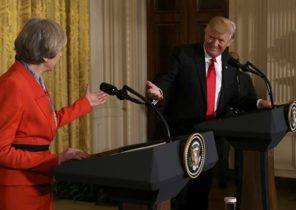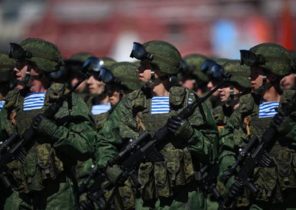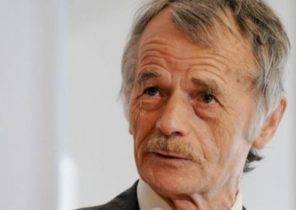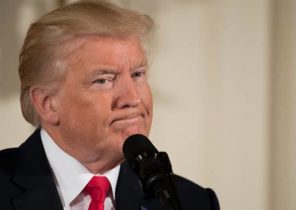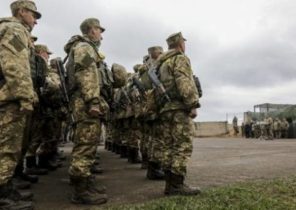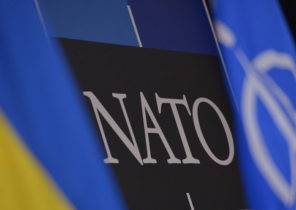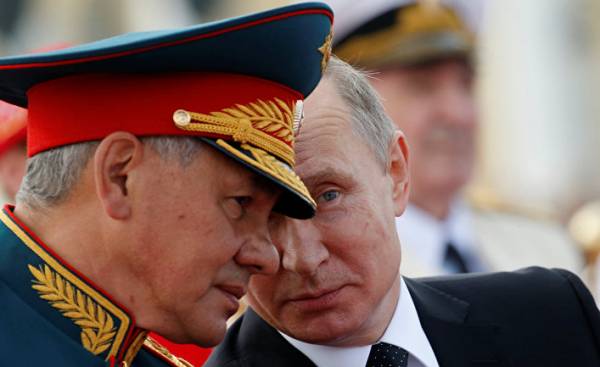
In the night of Sunday 23 February 2014 the President of Russia Vladimir Putin held an emergency meeting with heads of the Russian power structures.
Discussed at the meeting was about deposed Ukrainian President Viktor Yanukovych. Putin wanted to answer the question about how you can take Pro-Russian President of Ukraine, where a popular uprising has forced Yanukovich to leave the presidency, and dominated by political chaos.
When the meeting around seven in the morning came to an end, Putin had other plans.
“We need to start fighting for the reunification of the Crimea with Russia”, — Putin told his subordinates.
Four days later, on the Ukrainian Peninsula of Crimea appeared “little green men”. The Crimean crisis was a fact and thus a new hot spot in relations between the West and Russia.
Sanctions in response to sanctions
Since then, as Vladimir Putin in 2014 decided to Annex the Ukrainian Crimean Peninsula, relations between Russia and the West have become just ice.
In response to Russia’s violation of international law, the West led by the US imposed tough economic sanctions against Moscow. Norway joined the EU sanctions also imposed restrictions against Russia.
Russia to Western sanctions in connection with the annexation of the Crimea said their own limitations. In particular, there were limited imports from Western countries.
In the summer of 2015, for example, these countermeasures impact on exports of Norwegian salmon to Russia: he was terminated.
The apparent willingness of Russia to use force frightened the neighboring States and has intensified its rhetoric of NATO. The rhetoric was followed by the increased military presence near Russian borders. In response Russia began to accumulate arms for its side of the border.
The new cold war
“Almost daily we represent the biggest threat, whether in relation to NATO or Europe, America or other countries” — Dmitry Medvedev has described the situation in relations between the West and Russia in 2016, according to the BBC.
He swept aside all doubts and said that the world has once again witnessed the cold war between the West and Russia.
“Sometimes I ask myself: and not 1962 this the year?” — said Medvedev, referring to the possibly serious conflict of the cold war.
For 12 days in October 1962, the whole world was shaking at the knees during the so-called Cuban missile crisis, the peak of confrontation between the US and the USSR.
The infamous Russian hacking
The conflict between Russia and the West — perhaps especially between Russia and the U.S. reached a peak during the American election campaign in 2016.
Last summer, thousands of e-messages sent to the leadership of the Democratic party, quite unexpectedly, was published by Wikileaks just before the party Congress. At the Congress, Hillary Clinton was supposed to be formally endorsed as the presidential candidate of the Democrats.
19 252 leaked to the press of letters has overshadowed the news that as its candidate for Vice-President Clinton was elected Senator from Virginia Tim Kane. Over time, email has delivered a blow the election campaign of Clinton.
Two days later, after the leak of Hillary Clinton and the Democratic party accused Russia and Vladimir Putin that their servers were hacked.
It then began to circulate rumors that the representatives of the Russian government tried to interfere in elections.
Victory trump gave the Russians hope
After winning Donald trump’s election in the United States a number of American intelligence services and security services have accused Russia of meddling in elections in the United States.
In particular, they did it, allegedly, by hacker attacks. The Russian goal was to hurt Hillary Clinton and, therefore to help Trump to win, according to U.S. authorities.
New year’s eve, almost six weeks after the US presidential election, President Barack Obama gave the alleged Russian intervention.
Issuing a so-called presidential decree, he included two Russian intelligence Agency, the GRU and the FSB, and the four heads of Russian intelligence in the U.S. sanctions list.
Simultaneously, Obama has deported 35 Russian diplomats and seized two large mansion, belonging to Russia: one in new York, the other in Maryland.
Vladimir Putin, these sanctions did not respond.
Such a passive attitude to the measures taken by Obama, was dictated by the hope that Donald trump against Russia will choose a different course.
Putin even called for the expulsion of diplomats Obama’s “kitchen diplomacy”.
Send 755 diplomats
But Sunday night Russia and Vladimir Putin all responded to new U.S. sanctions 755 expulsion of American diplomats from Russia. Putin announced that he had decided to limit the number of diplomats that the United States is allowed to have in Russia.
The new “ceiling” is 455 people. This means that the number of American diplomats in Russia is reduced to the number of diplomats that Russia has in the United States.
The United States called Putin’s response “unfortunate and unnecessary step”.
The decisive answer given by Vladimir Putin and Russia on Sunday means a new line of Russian against the US and its relatively new President, Donald Trump.
It is the opinion of expert on Russia Tour Bukkvoll (Tor Bukkvoll), senior researcher of the research Institute of the Norwegian Armed forces, expressed in an interview with Dagbladet on Sunday.
“I would call it a rejection of the previous course. In a recent interview, Putin said bluntly that hoped to improve Russian-American relations with the arrival of trump, and now he’s this hope left. This is the reason that now Russia has reacted differently than in December,” said Buckwell.
On Friday, Russian authorities also seized two buildings owned by the United States: a dacha outside Moscow, where diplomats were able to leave, and warehouses.
